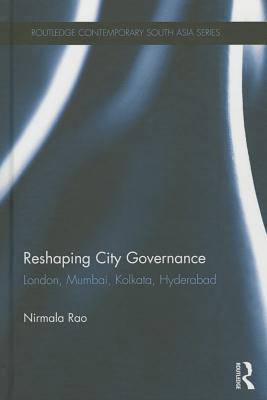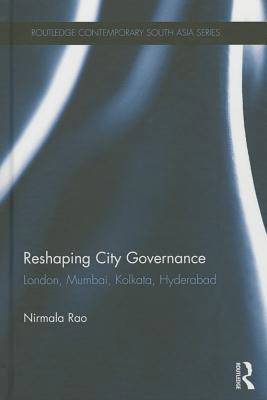
- Retrait gratuit dans votre magasin Club
- 7.000.000 titres dans notre catalogue
- Payer en toute sécurité
- Toujours un magasin près de chez vous
- Retrait gratuit dans votre magasin Club
- 7.000.0000 titres dans notre catalogue
- Payer en toute sécurité
- Toujours un magasin près de chez vous
Description
India's cities are in the midst of an unprecedented urban expansion. While India is acknowledged as a rising power, poised to emerge into the front rank of global economies, the pace and scale of its urbanisation calls for more effective metropolitan management if that growth is not to be constrained by gathering urban crisis.
This book addresses some key issues of governance and management for India's principal urban areas of Mumbai, Kolkata and Hyderabad. As three of the greatest Indian cities, they have evolved in recent decades into large metropolitan regions with complex, overlapping and often haphazard governance arrangements. All three cities exemplify the challenges of urbanisation and serve here as case studies to explore the five dimensions of urban governance in terms of devolution, planning, structures of delivery, urban leadership and civic participation. London, with its recent establishment of a directly elected Mayor, provides a reference point for this analysis, and signifies the extent to which urban leadership has moved to the top of the urban governance agenda. In arguing the case for reform of metropolitan governance, the book demonstrates that it would be too simplistic to imagine that London's institutional structure can be readily transposed on to the very different political and cultural fabric of India's urban life.
Confronting India's urban crisis with a comparative analysis that identifies the limits of policy transfer, the book will be particularly valuable to students and scholars of Politics, Governance, and Urban studies.
Spécifications
Parties prenantes
- Auteur(s) :
- Editeur:
Contenu
- Nombre de pages :
- 234
- Langue:
- Anglais
- Collection :
Caractéristiques
- EAN:
- 9780415672092
- Date de parution :
- 02-12-14
- Format:
- Livre relié
- Format numérique:
- Genaaid
- Dimensions :
- 152 mm x 234 mm
- Poids :
- 498 g

Les avis
Nous publions uniquement les avis qui respectent les conditions requises. Consultez nos conditions pour les avis.






